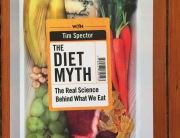 Following on from my last blog “6 Foods You Should Never Eat” which received a lot of feedback, here is my list of 6 foods to make sure you eat every single day. I am always asked by my clients what I eat and these feature all the time. Food really is medicine and by eating to support your health, you will save a lot of heartache, time and money in the long term.
Following on from my last blog “6 Foods You Should Never Eat” which received a lot of feedback, here is my list of 6 foods to make sure you eat every single day. I am always asked by my clients what I eat and these feature all the time. Food really is medicine and by eating to support your health, you will save a lot of heartache, time and money in the long term.
Fermented foods – to optimise your gut health, add in some Kim chi, kefir or kombucha to your diet. All these foods contain both pre and probiotics to help keep the right balance between good and bad bacteria in our gut. Research has shown that a healthy gut is essential for reducing the risk of cancer, autoimmune disease and diabetes.
Avocado – a delicious bounty of anti-inflammatory essential fatty acids, which form the building blocks for healthy hormones. Avocado is also packed with vitamin E which helps your skin stay smooth, supple and wrinkle free
Asparagus (when in season such as now!) -1 cup contains 65% of your daily folate requirements, which gives you boundless energy! A natural diuretic, asparagus is perfect for bloating and fluid retention, especially around PMT. Asparagus is rich in prebiotic fibre, which helps to keep your gut microbiome happy.
Quinoa – high in the relaxing mineral magnesium, quinoa contains all nine essential amino acids making it the perfect protein hit. A seed and not a true grain, quinoa has high nutritional value. High in magnesium, iron, Vitamin B3 – B6 and phosphorus to supercharge your day!
Organic foods – if you have access to them optimise your nutrition with organic food. It has more flavour, a higher nutritional template and less of a carbon footprint.
Kiwifruit – loaded with both soluble and insoluble fibre, kiwi fruit supports a healthy gut and regular bowels. It is also rich in vitamin C, a potent antioxidant that has an affinity to the adrenal glands.
References
- http://www.who.int/ceh/risks/cehemerging2/en/index.html
- http://www.ncbi.nlm.nih.gov/pubmed/23994667
- http://www.ncbi.nlm.nih.gov/pmc/articles/PMC1367841/
- http://www.ncbi.nlm.nih.gov/pubmed/21367689
- http://www.ncbi.nlm.nih.gov/pmc/articles/PMC3223004/
- http://www.ncbi.nlm.nih.gov/pmc/articles/PMC1367841/





















































































































































